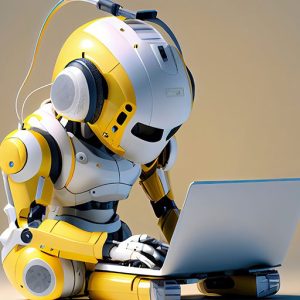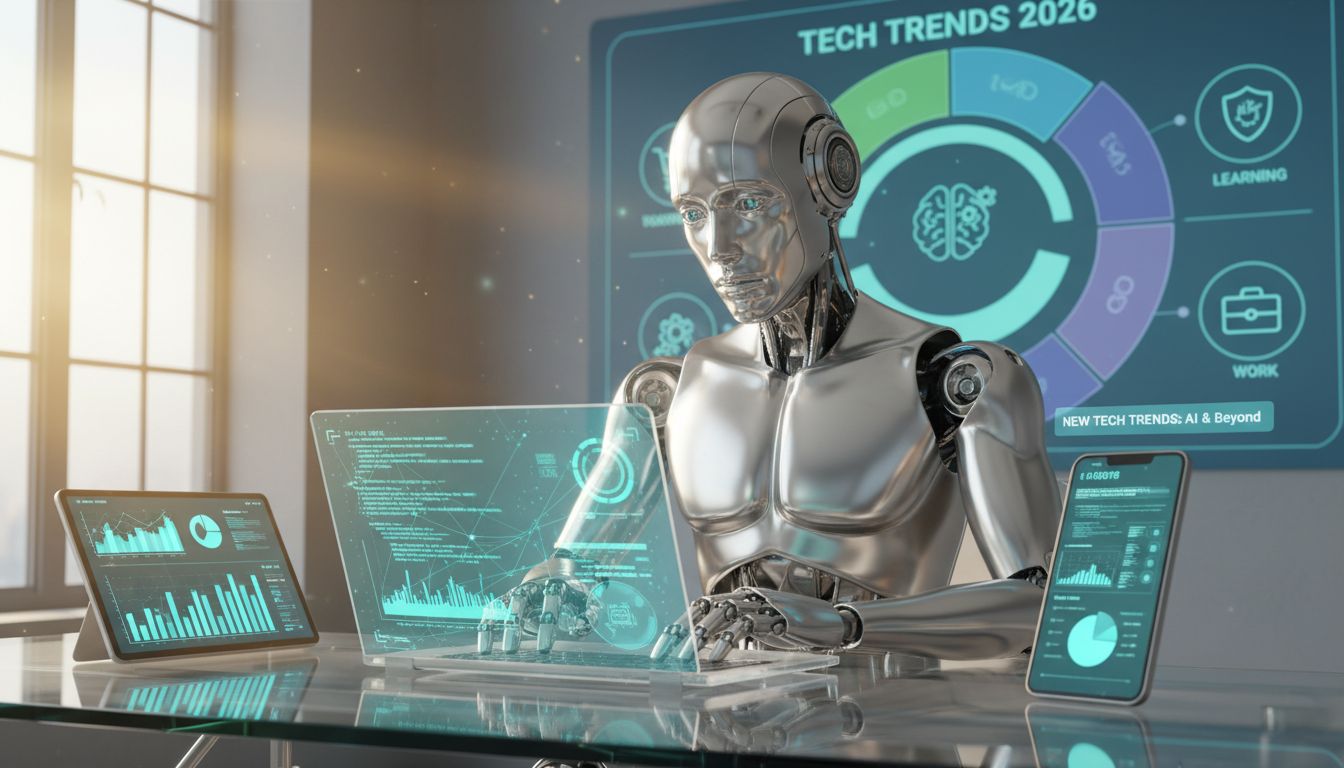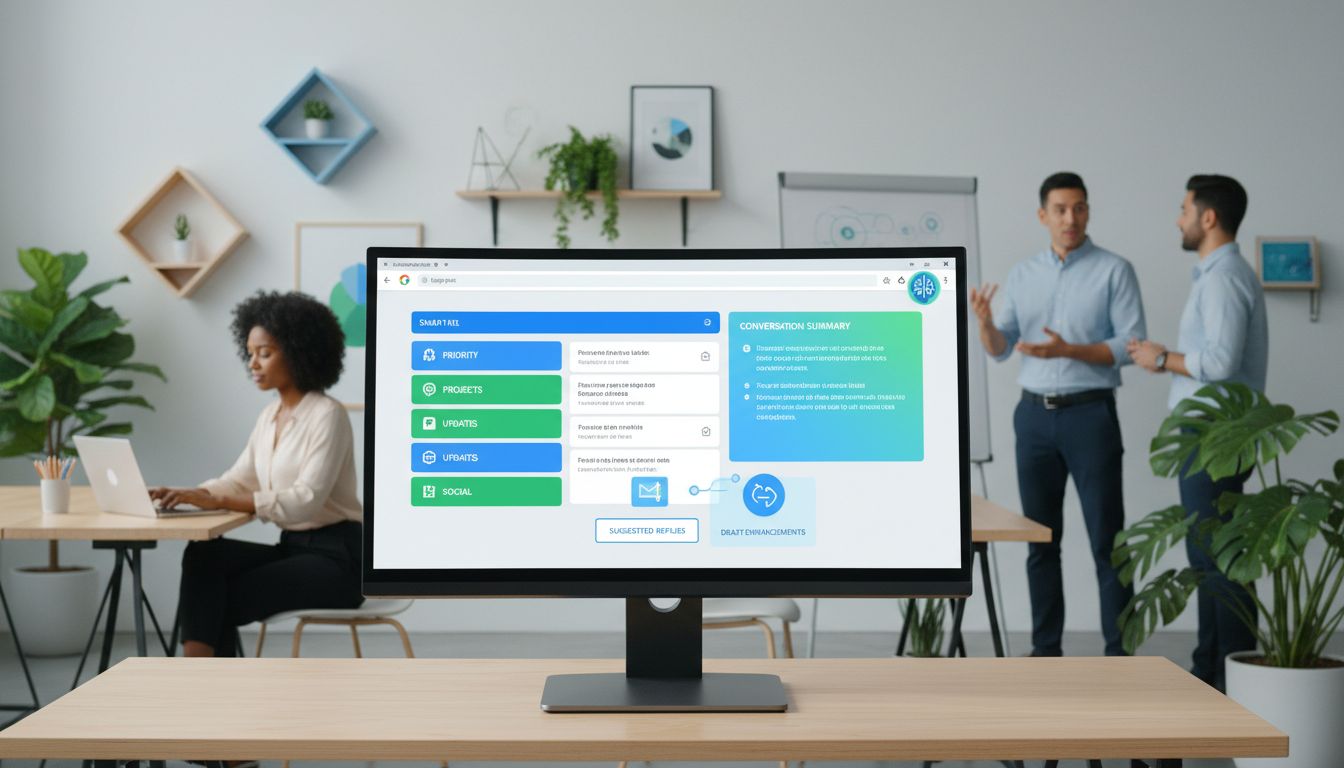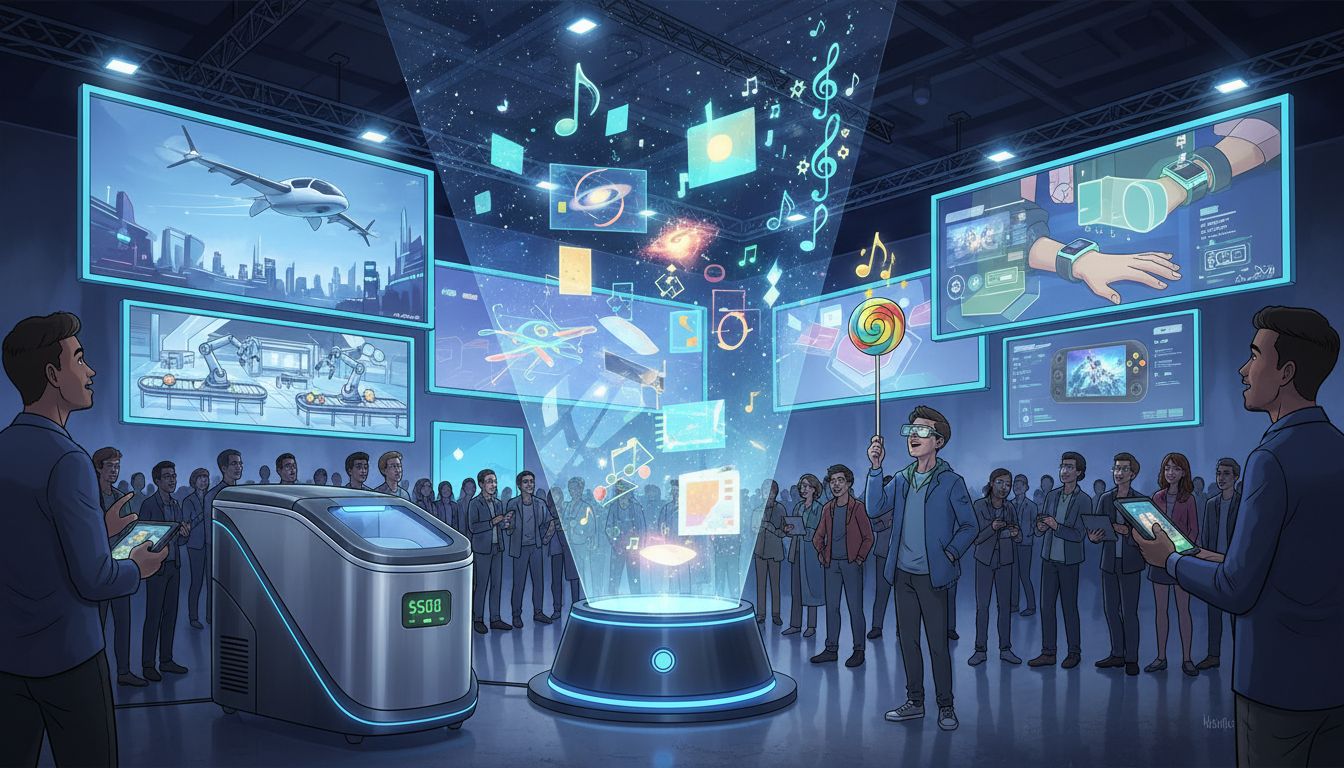If you’re interested in artificial intelligence, then you’ve come to the right place. In this blog post, we’ll be discussing the top ten AI trends that are shaping the industry and changing the way businesses operate. From responsible AI and data science to conversational AI, intelligent automation, industrial automation, statistical algorithms for data analysis, edge computing, and self-driving cars – this blog post will provide an overview of the latest trends in artificial intelligence.
We’ll explore how implementing AI models can help automate day-to-day operations for industrial automation, improve accuracy with statistical algorithms for data analysis, enable real-time data processing through edge computing, and even power self-driving cars. We’ll also take a closer look at some of the latest developments in speech recognition technology like natural language processing (NLP) and generative AI.
Additionally, we’ll discuss some of the tools available for implementing these technologies such as no-code AI platforms or pre-built chatbots powered by machine learning techniques like convolutional neural networks (CNNs). Furthermore, we will delve into ethical considerations when using these technologies including responsible use cases where ethics are taken into account during development.
Finally, we’ll touch on quantum computing advancements which could revolutionize everything from predictive analytics to image recognition capabilities making it possible to process vast amounts of information quickly while reducing energy consumption costs compared with traditional computers.
This piece is great for any individual who needs an outline of the advancements in this energizing field – from those simply beginning to those with existing AI experience. So sit back and enjoy learning about all things related to Artificial Intelligence!
Table of Contents:
- AI-powered Customer Interaction
- The Intersection of AI and IoT
- Generative Artificial Intelligence
- Intelligent Process Automation (IPA)
- FAQs in Relation to Discover the Top 10 Ai Trends
- What are the current trends in AI?
- Automated Transportation:
- Healthcare Diagnostics:
- Natural Language Processing (NLP):
- Cybersecurity & Fraud Detection:
- Education Assistance Programs:
- Robotic Process Automation (RPA):
- Smart Manufacturing:
- Financial Planning & Investment Advice:
- What are some future trends of AI explain?
- What is the top AI startup for 2023?
- Automation:
- Computer Vision:
- 5 .Robotics Process Automation (RPA):
- Conclusion
AI-powered Customer Interaction
AI-powered customer interaction is becoming increasingly popular, with companies like Replikr creating AI-powered avatars that can interact with customers in a personalized way. Auto Labs’ SophiCX automates customer service and Tatesoft’s low-code RPA platform streamlines business operations. With the advent of AI, businesses are now equipped to offer more expedient services than ever before.
Replikr’s AI avatar provides a conversational interface that can be tailored to each customer’s needs. The AI avatar employs NLP and ML techniques to comprehend the customer’s needs and deliver an appropriate response. This helps reduce costs associated with traditional customer service while providing an engaging experience for customers.
Auto Labs’ SophiCX offers automated support for customers by using chatbots powered by NLP technology. It allows businesses to handle multiple requests simultaneously without needing additional staff or resources – saving time and money in the process. Moreover, SophiCX can deliver tailored suggestions based on prior interactions with clients, enhancing their overall experience when engaging with the firm’s offerings.
Tatesoft’s low-code RPA platform enables businesses to automate mundane tasks such as data entry, invoicing, and other administrative duties quickly and easily without having to write any code themselves – drastically reducing development timeframes while still delivering quality results at scale. Utilizing the predictive analytics features of Tatesoft’s RPA platform, companies can acquire insight into how their processes are running to make wise choices for optimizing them in the future.
AI-powered customer interaction is a rapidly growing trend, and the intersection of AI and IoT promises to bring even more exciting possibilities. With cutting-edge technologies like Replikr’s avatar, Auto Labs’ SophiCX platform, and Tatesoft’s low-code RPA solution already on the market, businesses are well-positioned to take advantage of these advancements in automation.
The Intersection of AI and IoT
The intersection of AI and IoT is an exciting development that has enabled the creation of powerful platforms like M8 Systems, Butler, and Quantum AI. These startups are leveraging machine learning algorithms to create innovative solutions for optimizing supply chains, enabling smart buildings, and deploying secure edge computing infrastructure.
M8 Systems employs a mixture of cutting-edge machine learning and IoT technology to enhance the efficacy of supply chain management. This technology uses predictive analytics to anticipate demand shifts in real-time and make decisions accordingly. By combining these two technologies, businesses can reduce costs while improving customer satisfaction levels.
Butler leverages computer vision capabilities to enable connected devices within a building or home environment. The platform offers intelligent automation solutions such as motion sensors that detect changes in temperature or occupancy levels as well as facial recognition software that can identify visitors without requiring them to manually enter their credentials each time they enter the premises.
Quantum AI provides an end-to-end solution for deploying secure edge computing infrastructure across multiple locations worldwide. Edge computing reduces latency by moving computations closer to data sources, making it ideal for applications such as self-driving cars where fast response times are essential for safety reasons. Additionally, this technology also allows businesses to access large datasets quickly which would otherwise require significant manual labor input from employees or contractors working remotely from different locations around the world.
The Intersection of AI and IoT is a rapidly growing field, with many opportunities to optimize existing processes or create entirely new ones. Generative AI has the potential to transform industries, allowing companies to produce items that are perfectly customized for their client’s requirements.
Generative Artificial Intelligence
Generative AI is a branch of machine learning that utilizes massive data sets to create novel visuals or textual material. This technology has applications across various industries, from medicine to law enforcement and fashion e-commerce companies. In medicine, generative AI can be used to create synthetic patient records for research purposes or drug discovery. Law enforcement agencies are using GANs (Generative Adversarial Networks) for facial recognition software development, while fashion eCommerce companies are creating unique designs based on consumer preferences with the help of this technology.
Voice authentication provides an alternative to traditional passwords through biometric data such as fingerprints and facial recognition for identity protection. AI-assisted care is being used in autistic children and patients suffering from degenerative ailments, providing personalized attention with improved accuracy over time. Intelligent process automation combines AI with robotic process automation (RPA), allowing businesses to automate day-to-day operations without needing extensive coding knowledge thanks to no-code platforms like UiPath. Real-time data acquisition in digital metaverse settings makes it possible for large datasets which would otherwise require significant manual labor to be easily handled by machines powered by AI algorithms and statistical models trained on massive amounts of data.
Generative AI is a rapidly advancing domain with potential implications in many domains, ranging from healthcare to law enforcement. Moving on, biometrics and voice authentication are becoming increasingly important for providing secure identity protection and offering convenient alternatives to traditional passwords.
Intelligent Process Automation (IPA)
Intelligent Process Automation (IPA) is a powerful combination of artificial intelligence and robotic process automation that enables businesses to automate complex processes. By utilizing no-code platforms like UiPath, organizations can now access the benefits of IPA without needing extensive coding skills. IPA is especially advantageous when handling huge amounts of data that would require a lot of manual effort to manage.
IPA has recently seen a surge in popularity due to its capability of streamlining operations and providing precise results when dealing with predictive analytics, natural language processing, conversational AI, and image recognition. Moreover, IPA can be leveraged for a range of applications such as autonomous vehicles, industrial automation, virtual assistants, and smart homes – all of which are projected to grow in popularity over the coming years.
The potential of IPA is immense; from utilizing machine learning techniques such as convolutional neural networks or large language models to automate daily operations to processing data in real-time on edge computing devices, and even implementing speech recognition tools within social media platforms or voice assistants found in autonomous vehicles – the sky’s the limit. With its capacity for accuracy improvement in predictive analytics, natural language processing, conversational AI, image recognition, and more – this cutting-edge technology has become an invaluable asset that businesses can no longer afford to ignore.
Moreover, IPA can also be used responsibly by implementing ethical standards into AI models while taking into account any legal implications associated with their use. This allows companies not only to maximize efficiency but also to ensure they remain compliant with industry regulations while providing customers with a secure experience free from malicious intent or abuse of power.
Overall, Intelligent Process Automation provides an array of advantages that allow businesses across industries to benefit from this cutting-edge technology. Fashion e-commerce companies can create unique designs based on consumer preferences; law enforcement agencies can develop facial recognition software; and medical professionals can synthesize patient records for drug discovery. All of these applications demonstrate the potential of IPA in improving efficiency while remaining compliant with industry regulations and providing customers with a secure experience free from malicious intent or abuse of power.
IPA can be a great asset for businesses, enabling them to boost productivity and optimize their operations through automated processes and streamlined workflows. With the advent of real-time data acquisition in digital metaverse settings, it’s now possible to use AI technology even further to gain insights from these large datasets.
FAQs in Relation to Discover the Top 10 Ai Trends
What are the current trends in AI?
AI technology is rapidly evolving and becoming more accessible. Recent advances in AI include NLP for speech detection, ML to identify trends and find anomalies, CV for object recognition and facial identification, deep learning to automate decision-making processes, reinforcement learning to optimize intricate systems, robotic automation for physical tasks, and conversational AI for customer service interactions. These advancements are allowing businesses to increase efficiency while reducing costs.
1. Automated Transportation:
AI can be used to power autonomous vehicles, allowing for faster and safer travel with fewer resources needed for maintenance.
2. Healthcare Diagnostics:
Artificial intelligence can help medical professionals diagnose illnesses more accurately by analyzing patient data quickly and efficiently.
Smart homes equipped with AI-enabled technology can enable homeowners to remotely manage their environment through voice commands or mobile applications.
3. Natural Language Processing (NLP):
NLP allows machines to understand human language so they can interact with humans more naturally and respond accordingly based on context clues provided by the user’s speech patterns or written text inputted into a system interface such as a chatbot or virtual assistant app like Alexa, Siri, etc
4. Cybersecurity & Fraud Detection:
AI-driven cybersecurity solutions are able to detect threats before they cause damage by recognizing suspicious activity in real time and alerting administrators of potential risks before it is too late to act upon them effectively .
5. Education Assistance Programs:
AI technologies could be used within educational systems to provide personalized learning experiences tailored specifically towards each student’s individual needs that would enhance their overall understanding of course material at an accelerated rate compared to traditional teaching methods.
6. Robotic Process Automation (RPA):
AI-driven RPA systems can automate mundane tasks, freeing up valuable time for employees to focus on more complex and important projects or initiatives within their respective fields of expertise.
7. Smart Manufacturing:
AI technologies can be used in manufacturing plants to optimize production processes by predicting potential problems before they arise and suggesting corrective actions accordingly based on data collected from previous production runs or simulations run using predictive analytics software solutions .
AI is able to identify items, people’s faces, scenarios, etc., in images and videos with a higher precision than humans can attain through the utilization of deep learning algorithms that are trained as they process huge amounts of visual data obtained from users or machines.
9. Financial Planning & Investment Advice:
AI-powered financial planning tools will allow individuals to make better decisions regarding their investments without having an expert knowledge base about the markets due to its ability analyze vast amounts of information quickly and accurately while providing actionable insights into various investment strategies available at any given moment in time .
What are some future trends of AI explain?
AI technology is rapidly advancing and its future trends are becoming more prominent. Automation driven by AI will proceed to ascend, with machines taking on duties that used to be carried out by people. Advanced machine learning models will become increasingly capable, allowing them to autonomously tackle complex tasks without any human intervention. Natural language processing (NLP) capabilities of AI systems will also improve drastically, enabling better communication between humans and machines. Additionally, the development of quantum computing could allow for even greater leaps in AI performance as it can process data faster than ever before. All these advancements point towards a brighter future for artificial intelligence.
What is the top AI startup for 2023?
The top AI startup for 2023 is yet to be determined. Despite the yet-to-be-determined top AI startup for 2023, those with a strong presence in the industry and continuing to innovate are likely contenders; while tech giants like Google, Microsoft, Apple and Amazon remain at the forefront of innovation due to their financial resources and expertise. Organizations such as Google, Microsoft, Apple and Amazon are predicted to stay in the vanguard of invention due to their economic resources and skill in AI technology. Other startups with emerging technologies could also emerge as potential leaders over the next few years. It will be interesting to see which companies succeed in taking advantage of new opportunities presented by this rapidly evolving field of AI research and development.
1. Automation:
Automation is becoming increasingly popular as it allows machines to complete tasks that would normally require human intervention. This includes activities such as data analysis, customer service and even medical diagnosis.
2. NLP allows computers to decipher the connotations of words and phrases, allowing them to answer inquiries or instructions in a manner similar to humans.
3. Computer Vision:
Computer vision involves teaching computers how to recognize objects in images or videos by analyzing patterns and features within those visuals.
Deep Learning utilizes a structure modeled after the human brain to provide more intricate decision-making capabilities than conventional machine learning algorithms can offer.
5 .Robotics Process Automation (RPA):
RPA is a form of automation technology used for automating repetitive tasks usually performed by humans using computer software bots instead
Conclusion
Uncovering the 10 main AI patterns makes it plain that Artificial Intelligence has become a fundamental piece of our lives and will keep on forming how we manage a business, learn, and look after ourselves. Staying abreast of the latest AI trends will ensure that we are prepared for what lies ahead. By understanding what’s happening in this rapidly changing field now, entrepreneurs and AI enthusiasts alike can make sure they are ahead of the curve when it comes to leveraging new technologies.






